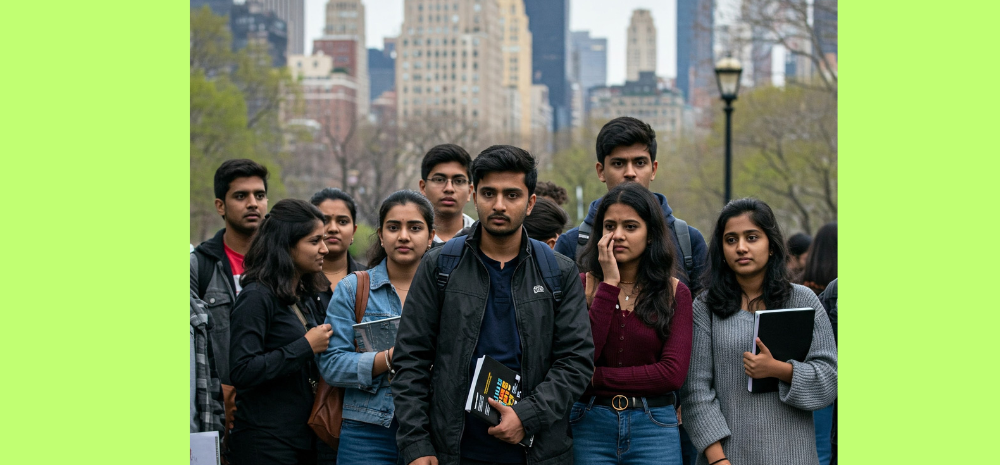A newly proposed bill in the U.S. Congress has sent shockwaves across American universities, particularly among Indian students. The legislation seeks to eliminate the Optional Practical Training (OPT) program — a vital bridge that allows international graduates, especially from STEM fields, to gain work experience in the U.S.

Why OPT Matters for Indian Students
According to the Open Doors 2024 report, nearly one-third of Indian students in the U.S. in the 2023–24 academic year were eligible for OPT. The program currently offers 12 months of work authorization post-graduation, with an additional 24-month extension for STEM students — totaling up to 36 months of work opportunity.
Without OPT, students will be forced to immediately secure an H-1B work visa or leave the country — a difficult challenge given the lottery-based cap on H-1B visas.
Panic Across Campuses
The proposed bill has triggered widespread concern. Students on F-1 and M-1 visas are now scrambling for legal support or considering moving to countries like Canada and Germany, which offer more immigrant-friendly policies.
Top universities like Cornell, Columbia, and Yale have advised international students to avoid international travel, fearing they might be denied re-entry. Many Indian students have already canceled summer plans as uncertainty grows.
Legal and Political Backdrop
The bill is part of a broader anti-immigration push by the Trump administration. At a recent U.S. House Judiciary Committee hearing, Jessica M. Vaughan of the Center for Immigration Studies criticized OPT and CPT (Curricular Practical Training) as unregulated and vulnerable to abuse. She called for their elimination, citing the creation of an unchecked “guest worker” population.
In 2022, WashTech, a workers’ alliance, filed a lawsuit arguing that OPT enables companies to bypass the H-1B cap and undercut U.S. wages.
The Numbers: A Massive Workforce
In FY 2023, a staggering 539,382 foreign students were working in the U.S. under OPT, STEM OPT, and CPT. Unlike H-1B visas, these programs have no annual cap:
- 276,452 on OPT
- 122,101 on STEM OPT
- 140,829 on CPT
What Lies Ahead?
If the bill passes, U.S. universities and tech companies — which heavily rely on foreign talent — may face long-term repercussions. For now, institutions are holding legal briefings and offering support to help students plan next steps in an uncertain future.











